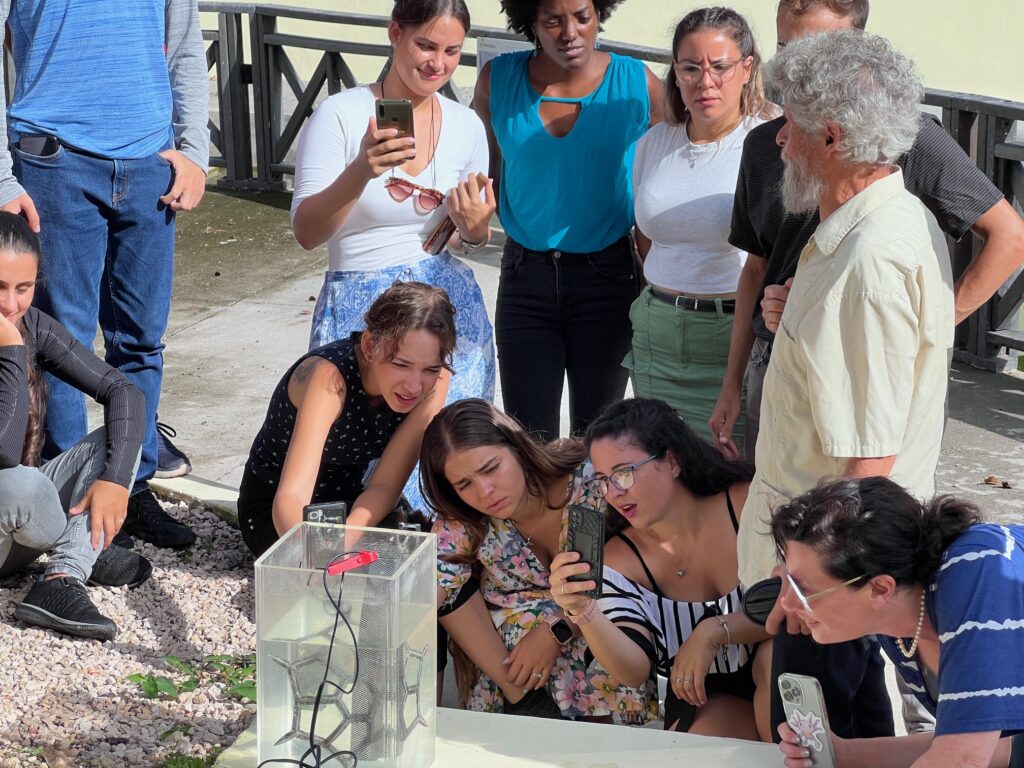
In June 2024, I had the privilege of participating in an extraordinary conference organized in collaboration with the University of Havana and the Ocean Foundation. This gathering brought together leading marine scientists, students, and restoration practitioners to focus on one of the most promising frontiers in coral reef recovery: larval coral propagation.
This technique, which involves collecting coral spawn and nurturing it through its early developmental stages before outplanting, offers a scalable and sustainable method for restoring reef systems devastated by climate change and pollution.
As part of the program, we were also able to conduct a hands-on BioRock demonstration, showcasing how mineral accretion technology can be used to create sustainable, non-toxic reef structures that support coral growth while reducing erosion. The demonstration took place in the breathtaking setting of the National Botanical Garden of Havana—an ideal backdrop for a conversation bridging science, nature, and public engagement.
What made the experience especially moving was the overwhelming response from students. While we had originally planned for a modest group of 10 participants, more than 40 students attended, each of them bringing an extraordinary level of curiosity, engagement, and talent. Their presentations exceeded all expectations, highlighting innovative ideas, deep research, and a sincere passion for marine conservation.
It was a true honor to witness this level of commitment from the next generation of Cuban scientists and environmental stewards. The experience left me not only inspired, but more confident than ever in the capacity of collaborative, interdisciplinary work to foster real ecological transformation.
Mara G Haseltine